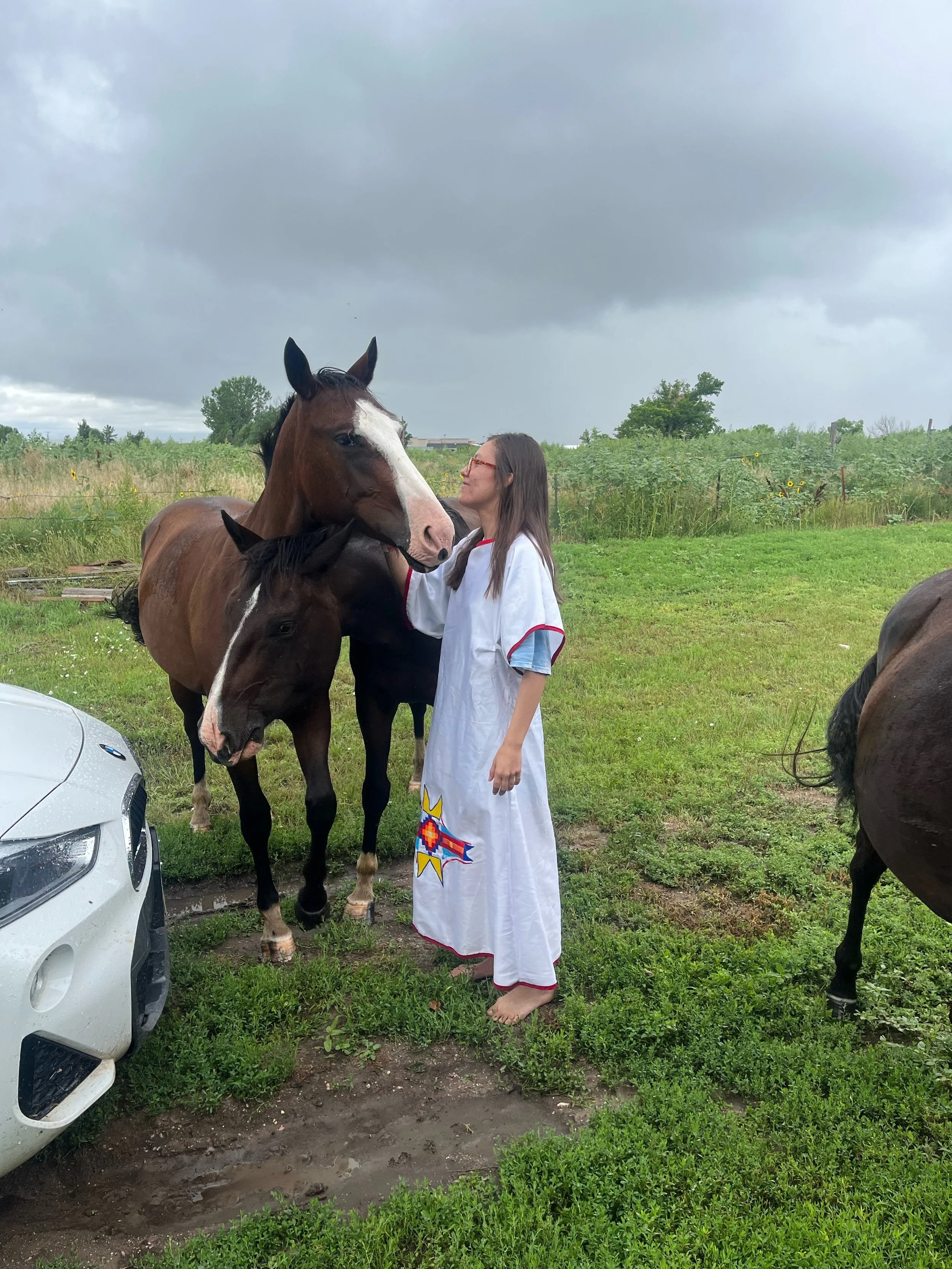From the Powwow Circle to Your Screen
I grew up immersed in the traditions of the Mandan, Hidatsa, and Arikara Nation, where dance isn't just performance—it's prayer, storytelling, and connection to our ancestors and to the earth. The powwow circle was my first classroom, teaching me that every step carries meaning and every movement honors those who came before.
Dance saved my life in many ways. It gave me purpose, community, and a way to express what words couldn't capture. For me, it's also been a powerful tool for managing ADHD—helping me find focus, channel energy, and process the world around me. I share this because representation matters. Creative industries need neurodivergent voices, and my ADHD isn't a limitation—it's part of what makes my perspective unique.
As I grew older, I felt called to share these traditions beyond our community—not to appropriate or commercialize, but to invite genuine understanding and demonstrate that indigenous cultures are vibrant, evolving, and deeply relevant today.
Building Community Through Cultural Exchange
Twelve months ago, I started sharing powwow traditions on TikTok, not knowing if anyone outside my community would care. What happened next surprised me: people from around the world began following along, asking thoughtful questions, and sharing their own cultural traditions. They told me how my content inspired them to reconnect with their heritage or explore movement for the first time.
That community has grown to 54,000+ engaged followers and caught the attention of Indian Country Today, but the numbers aren't what drives me—it's the connections being made. What sets my approach apart is participation over observation. I don't just showcase cultural traditions as spectacle; I participate fully, learn deeply, and invite authentic exchange. When I teach my powwow steps and learn yours, we create genuine moments of mutual respect that transcend difference.
This foundation has become a launchpad for bigger dreams—including "Steps Across America," a television series that takes this vision of cultural bridge-building to audiences everywhere.
Love, Acceptance, Tolerance and Coexistence
My mission is simple but urgent: use dance as a bridge between cultures, demonstrating that we can honor our unique traditions while celebrating our shared humanity.
This work is guided by core values:
Respect—Every cultural tradition deserves reverence and proper context, never exploitation or oversimplification.
Exchange—True cultural sharing is mutual. I teach my traditions and learn from others with equal humility and enthusiasm.
Inclusion—Dance traditions can welcome everyone when approached with genuine respect and interest, not appropriation.
Joy—Movement should be accessible, healing, and fun. Dance belongs to everyone willing to honor it.
Authenticity—I share my truth and honor the truth of others, creating space for real human connection across differences.
This is the Content Our World Needs
We live in a time of deep division, where people are often encouraged to fear those who look different, believe different things, or come from different backgrounds. But something powerful happens when you dance with someone—when you struggle together to learn new steps, when you share the meaning behind your movements. You stop seeing "the other" and start seeing a fellow human.
Dance is one of the few truly universal experiences. Every culture has developed its own forms of movement to celebrate, mourn, worship, and connect. By centering dance, we explore the beautiful diversity of human expression while discovering what we fundamentally share.
This is why I'm pursuing projects beyond social media—to reach broader audiences with content that doesn't just educate, but transforms. Content where indigenous voices lead the narrative. Where participation replaces observation. Where viewers don't just learn about cultural traditions, but feel inspired to engage with them respectfully in their own communities.
Success looks like cultural understanding deepening, barriers between communities lowering, and the entertainment industry recognizing that authentic exchange—not performative diversity—is what creates meaningful change.

